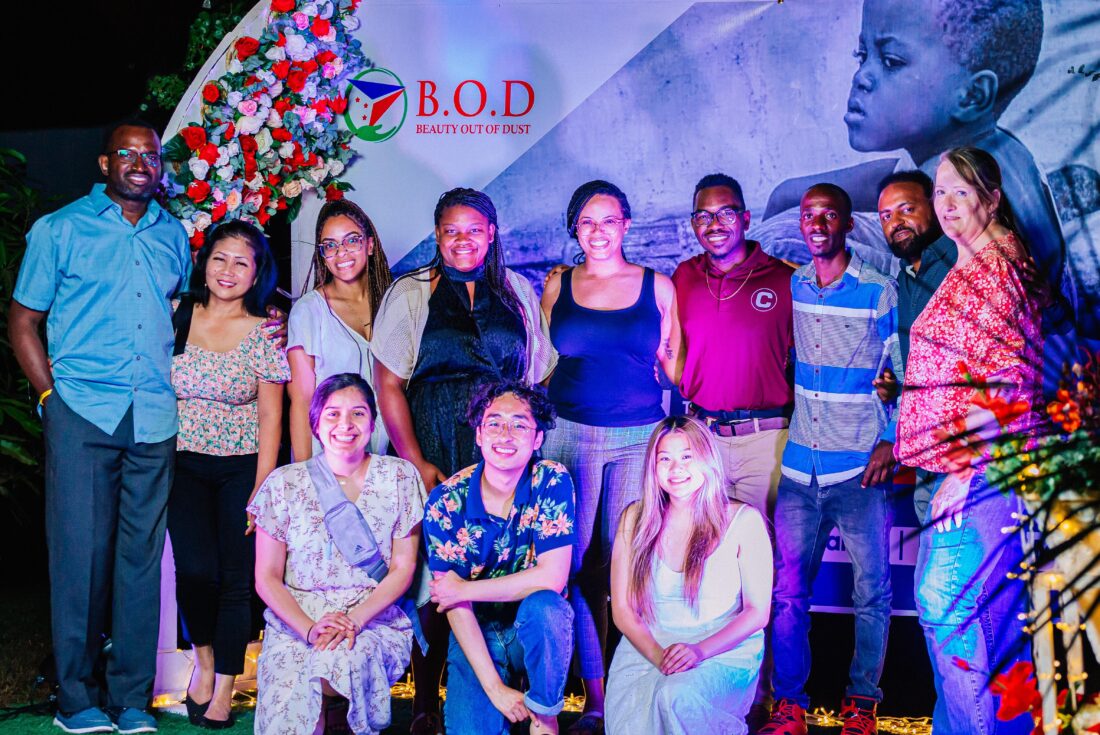Going Home
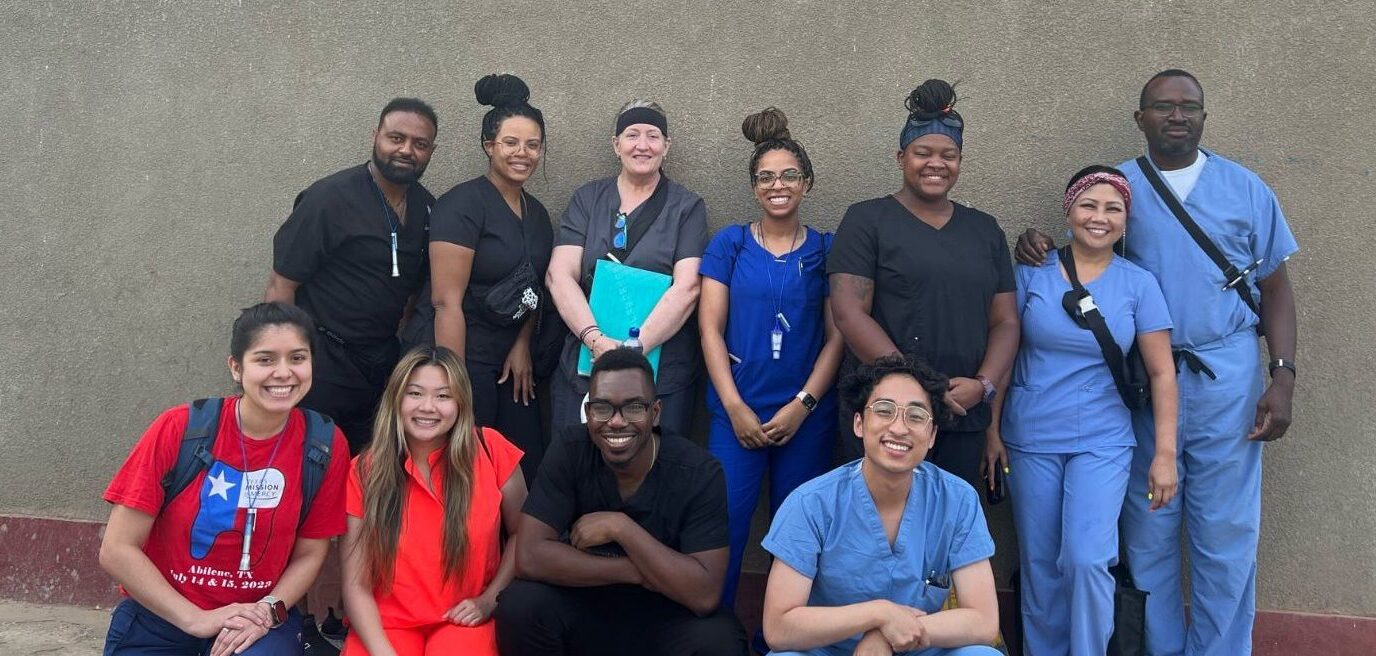
Shimirimana Eliya danced across the stage at the Texas A&M College of Dentistry commencement in 2023. What appeared to be a full circle moment for the newly minted dental hygienist was actually a prerequisite for his next goal – to return home.
Eliya, who was born in an African refugee camp and suffered with severe tooth decay most of his childhood, yearned to go back and provide the care that eluded him for so many years.
After months of planning and the alignment of talent, heart and resources, Eliya was one of a nine-member team from the dental school to embark on a mission trip to Kanyosha, Burundi, in May 2024. Led by Dr. Jonathan Clemetson, alum and adjunct associate professor, with the support of nonprofit Beauty Out of Dust (BOD), the team treated patients in one of the most underserved countries in the world.
“It’s one of the poorest countries, wracked with political instability and corruption, but it’s a beautiful country – beautiful landscape and great people,” Eliya said.
Answering a calling
Eliya first approached Clemetson about the possibility of a Burundi trip long before graduation. One of the least developed countries in the world, it’s ranked 187th out of 189, according to the United Nations Development Program.
Clemetson, who led annual trips to Zambia, Kenya and Jamaica – his home country – for the last 10 years, understood Eliya’s desire to give back, admired the young man’s work ethic and wanted to help facilitate the trip if possible.
They both knew there would be challenges.
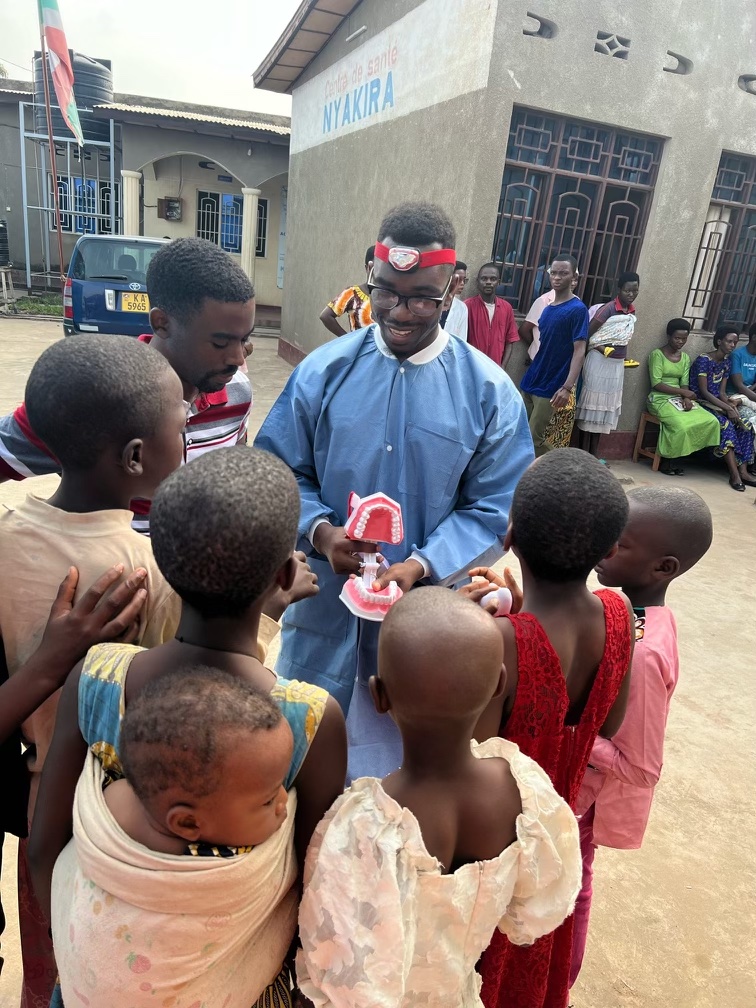
“I talked to him about working with Beauty Out of Dust to see what we could do to get over there and provide dental work,” Eliya said.
BOD is a nonprofit organization working to empower children, youth and women through education and community development in Burundi and neighboring countries. Organized by Eliya and his peers, almost all the BOD members grew up or spent time in refugee camps as a result of the Hutu and Tutsi Genocide, but their cultural roots are in Burundi.
“Most of us weren’t able to be born in [Burundi] so we never knew how it felt to be home,” Eliya said. “We didn’t even know a lot about the country because the war displaced millions of people. My mom was originally from Burundi. She moved to Congo and then Tanzania, where I was born.”
Eliya is one of 12 children, and oral health care was almost nonexistent in the refugee camp. He began having problems at a young age, and although his family sought treatment, traveled long distances and waited for hours only to be turned away, his oral health care issues were not resolved until after his family moved to the United States in 2007. His decade-long quest for care inspired his career path, eventually leading him back to his homeland.
Setting up shop
Clemetson said he reminded the students on the trip, “we’re not here because we’re smarter.
“We’re here to share from the little abundance we have, and they will share from their abundance,” he said of their African patients. “And their abundance might be a piece of granite or a bag of tomatoes.”
Getting into the country with the dental equipment proved incredibly difficult, though, despite having followed every detail of the travel protocol.
“I understand now why it’s one of the most underserved countries,” Clemetson said. “The system was really convoluted, making it difficult to come into the country and help people.”
Because their supplies were temporarily held at the airport, the team was delayed in getting started, but once they were set up at the clinic, the BOD members helped bridge the cultural gap, said Jane Cotter, an associate professor in dental hygiene, who was also on the trip.
“The Beauty Out of Dust volunteers helped make the people feel more comfortable because they spoke their languages, and because it’s a Third World country, there is corruption and they were sensitive to that,” she said. “They ran interference when someone was trying to buy an appointment or bribe their way in.
“That was mostly the first day. Once we figured it out, I put a stop to it if something seemed fishy.”
Cotter said at least 200 patients showed up every day, hoping to receive treatment.
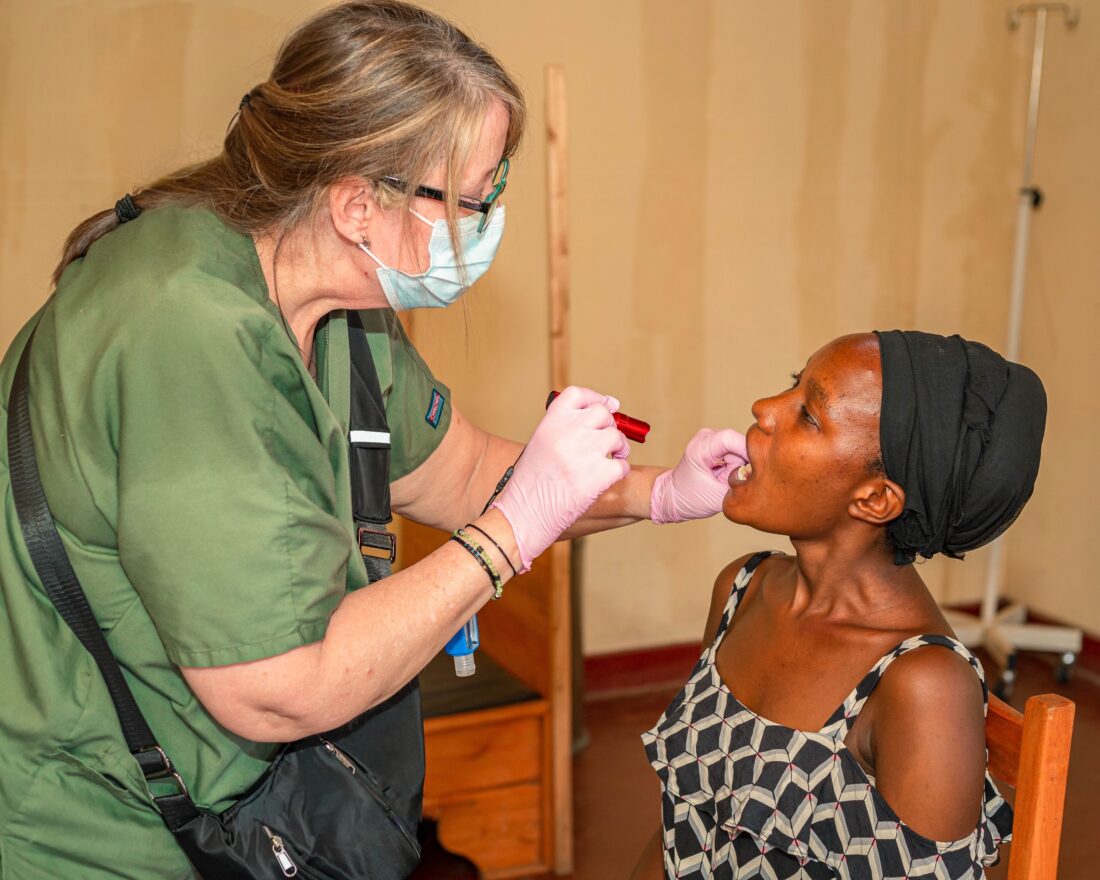
“We’d get there at 7 a.m., and there would already be lines and lines of people,” she said. “We’d have to pick our way through the crowd to get to our areas and get set up.”
Eliya said seeing people waiting all day, hoping for treatment, reminded him of his experience as a child.
“There was one patient who came from Tanzania, which is on the opposite side of Burundi,” Eliya said. “There were other patients who slept at the clinic where we worked or who would show up at 2 a.m., hoping to be among the first patients the next day.”
Cotter worked with a nurse to check in patients and document their health histories.
“I was also looking in their mouths to figure out their greatest needs,” she said. “Unfortunately, we couldn’t do more than one thing.”
Clemetson said the biggest challenge to providing care was the lack of infrastructure. Without reliable electricity and running water, it was impossible to perform some procedures, but the team still saw around 50 patients per day. The bulk of treatment consisted of screenings, cleanings, extractions, education and fillings, when they were able.
“The number is not what tells the tale,” Clemetson said. “The number represents how we did under those conditions. The fact that we were able to treat anyone was impressive.”
Making an impact
Clemetson said one of his goals in leading these trips is helping students realize the impact they can make through the dental profession.
“… the effect that you can have on somebody who may not speak your own language, eat your own foods, worship the same way you worship, whatever it is,” he said, “can be so far reaching. I was so proud of the students who went on this trip – every single one of them.”
Dental students who made the trip were Zelalem Amare, Serena Brown, Alexxa Facio, Kacie Jackson and Randy Vu. Jenny Duong was the lone dental hygiene student on the trip.
“This is the future of dentistry,” Clemetson said about the group. “They were receptive to learn dentistry, to learn the culture and respect the people. Most importantly, they were caregivers, offering personal interaction. Even with the language barrier, they explained things to the patients.
“They understood it was more than a tube of toothpaste.”
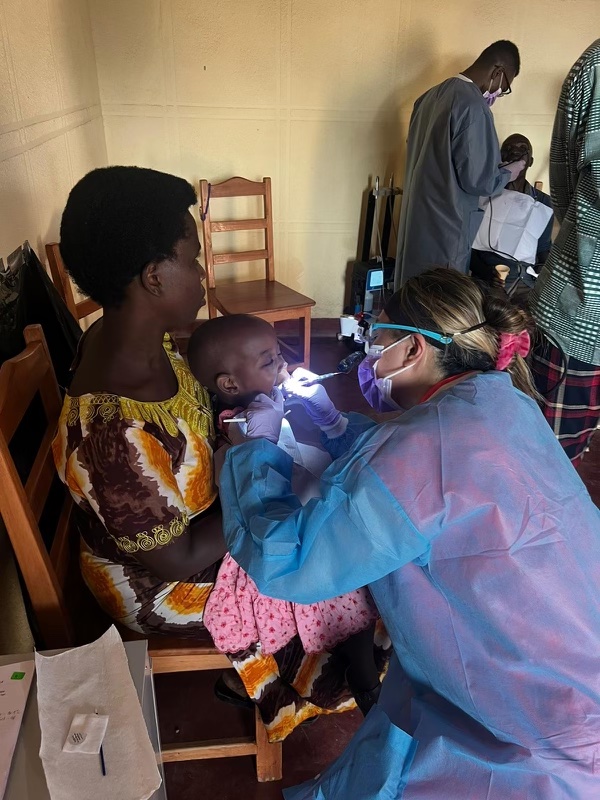
Jackson, now a fourth-year dental student, said she learned some key phrases in Burundi to comfort the patients and ensure the procedures went smoothly. In addition to a greeting, Jackson learned how to say “open,” “open big” and “breathe.”
“Those three things helped me a lot with a young boy,” she said. “He was 7 or 8, and I had to pull out his tooth. But he was really listening to me and breathing, so then I was able to take out his tooth and we became best friends. We had a little handshake and everything.”
The students even had the opportunity to treat Eliya’s family members. His oldest sister, who was married and did not move to the U.S. with the rest of the family, lives in Burundi, and she brought her children to meet Eliya for the first time.
“I had not seen her in 20 years, and I had never met her kids,” he said. “I was able to do their cleanings, and we did some fillings for them. It was great being able to see her again.”
Eliya, who works full time at Prism Health in Dallas, said he wants to work with Clemetson to determine how to best serve the country of Burundi in the future. He hopes regular trips to his homeland would eventually lead to clinics focused on prevention and education versus emergencies and extractions.
“We always want it to be something that we go back to, rather than going one time and leaving,” he explained. “We want to make sure people are able to be treated somewhat regularly. I know we’re going back to Zambia, but maybe Burundi can become part of the rotation.”
Clemetson said only after arriving in Burundi did he begin to understand Eliya’s reality.
“I can only imagine some of the pain that he must have gone through at the end of our working days, as we ran out of supplies and had to turn people away,” Clemetson said. “When I got to Burundi, I realized that it wasn’t for Shim. They – Beauty Out of Dust – did it for the Shims. I realized that his brother, his friends, everything they do is not about him. It’s for others like him, like them.”
